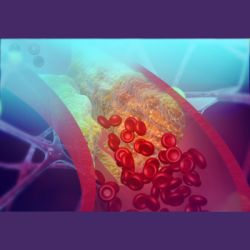In his opening address to members of the press, ECR 2011 Congress President Prof. Yves Menu spoke about how "Powerful online communications, financial constraints, and the growing trend for subspecialisation have led congress organisers to wonder how meetings can better mirror changes in medicine and society. The aims of a meeting – to promote scientific exchange between delegates and provide education at various levels – have not changed. But the world has."
“Making a congress today cannot be the same as it was decades ago,” continued ECR 2011 Congress President Professor Yves Menu from Paris.
Subspecialisation has increased, making communication more difficult between different subspecialists within a discipline like radiology, he explained. The range of knowledge has broadened considerably, with a huge number of imaging tools that did not exist thirty years ago. And while e-communication has improved immeasurably, financial limitations in times of crisis and ecological concerns restrain the desire or ability to travel. All these factors call for a change in the way international conferences are being held.
“One idea would be just to cancel all meetings and organise them remotely, taking advantage of internet communication. However this would not take into account one of the main advantages of meetings; face-to-face communication,” Menu said.
Experts are leaning towards transforming meetings from the inside, by taking into account new trends in modern medicine. Interactivity, personalisation and multidisciplinarity must be reflected in radiological congresses.
The ECR 2011 scientific programme bears witness to this evolution. Attendees can now participate in several different ways, with electronic keypads, in pre-organised discussions and through direct interaction with lecturers.
Personalisation is also necessary since audiences are heterogeneous. “Not all attendees are at the same level and share the same background. We must offer progressive teaching, provided either by different sessions with a clearly defined level or through computer-based tools that enable delegates to make their own way through the programme,” said the ECR President.
Along with increased subspecialisation in radiology, communication with other medical disciplines has become more and more important. Multidisciplinarity must feature in a congress programme, and the popular ‘ESR Meets’ initiative, which this year welcomes gastroenterologists, is a good example of this new reality. Many other ECR sessions, including Refresher Courses and Special Focus Sessions will also feature multidisciplinary interaction.
Finally law, economy, public health, organisation, audit and standards, and many other topics are concepts that radiologists should become more familiar with, Professor Menu believes. “The role of the meeting is also to raise the delegate’s interest in these important issues,” he said.























